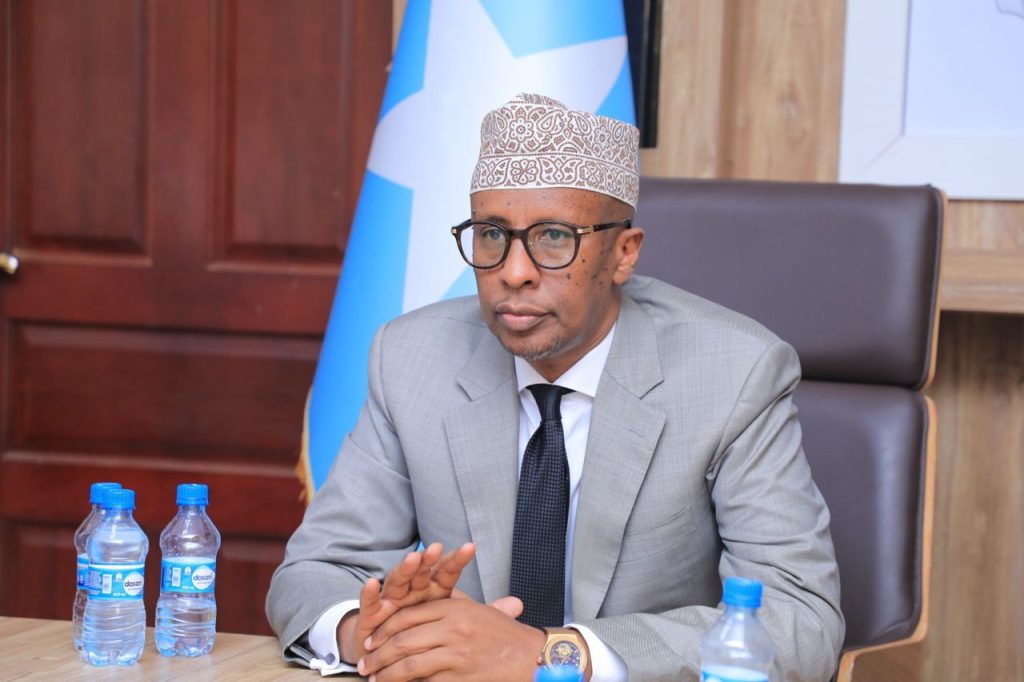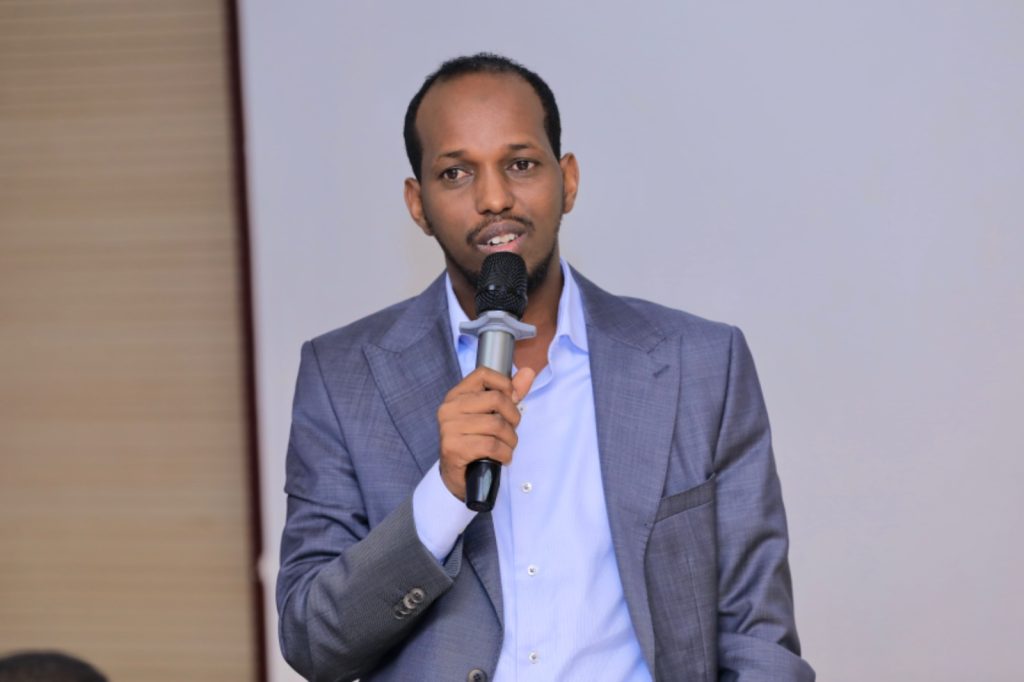Energy Sector Working Group -ESWG
- Home
- Energy Sector Working Group -ESWG
Somalia Electricity Access Information
Establishment of Energy Sector Working Group
The Minister of Energy and Water Resources of the federal government of Somalia has recently appointed the Energy Sector Working Group ESWG with the primary goal of transforming the nation’s energy sector, conduct sector jointly review twice a year, showcase the energy sector achievements, formulate, and review energy sector strategic plan and develop, update implement sector monitoring and evaluation framework. This initiative is aimed to tackle prevailing challenges, and the group is mandated to undertake joint energy sector reviews biannually. The Energy Sector Working Group brings together a diverse range of stakeholders from the energy industry, encompassing the ministries of energy and water resources from federal member states, existing electricity service providers within Somalia, development partners such as the World Bank, African Development Bank, UNDP, USAID, EU.
Energy Sector Working Group Objectives


- To Coordinate activities within the sector and ensure alignment and harmonization to reach sector
- To develop and update the Sector Strategic Plan (SSP),
- To develop and update the Sector Logical Framework (log frames);
- To develop, update and validate sector Monitoring and Evaluation (M&E) Frameworks
- To develop a sector-wide approach (SWAP).
- To Conduct Joint Sector Reviews (JSR) at least twice a year and timely disseminate related
- To Facilitate dialogue and regularly discuss sector
- To Contribute to the mobilization of resources for the Sector
Director General of the MoEWRs Chairs the ESWG
The Director General of the Ministry of Energy and Water Resources of the Federal Government of Somalia chairs the Energy Sector Working Group. The current development partners in the energy sector will co-chair the ESWG.

Key Responsibilities of the Chair
- Convene ESWG meetings; this includes setting the agenda in consultation with the lead donor (co-chair).
- Chair the ESWG meetings!
- Ensure relevant government institutions, civil society organizations and private to participate in the ESWG or sub-group.
- Prepare a bi-annual backward and forward-looking JSRs progress reports on the status of Sector Strategy implementation. These reports should be shared with ESWG members.
- Prepare Joint Sector Review meetings in coordination with the Lead Donor (co-chair)- including budget execution report. These meetings shall be chaired by the Minister of the Federal Ministry of Energy and Water Resources.
- Prepare and update the Sector Strategic Plan and present it to ESWG for validation.
- Develop, operationalize, and update the Sector M&E framework and present it to ESWG for validation.
- Develop and update the Sector log frame and present it to ESWG for validation.
- Communicate all relevant information concerning the ESWG to members; this may include strategic documents, reports, meeting agenda and schedules.
- Establish technical sub-groups wherever necessary and appropriate.
- Assign to members institutions of the ESWG any other relevant work as deemed necessary and appropriate.
Key Responsibilities of the Co-Chair
- It is the responsibility of the lead donor (Co-chair) to;
- Co-Chair the Sector Working Group meetings.
- Assist the MoEWR with the coordination of the ESWG and to ensure the donors active in the sector are fully represented in every ESWG meeting.
- Support the MoEWR in preparation of Joint Sector Reviews
- Coordinate common response and activities in line with sector priorities and plans.
- Contribute to the mobilization of resources for the Sector in collaboration with the MoEWR.
- Co-sign the agreed minutes of ESWG meetings.
- Contribute actively to and ensure effective dialogue within the sector.
Scope of the Energy Sector Working Group -ESWG
- Conduct Review for Energy Sector Status: This involves understanding the current state of energy resources such as installed capacity, electricity demand, and current electricity infrastructure, capacity of energy service providers in Somalia, demand forecasting.
- Conduct Joint Sector Review twice a year: the ESWG is required to conduct mid-term and annual sector reviews, the sector working group will evaluate the on-going energy projects implementing by the MOEWRs and other development partners and develop review reports which will be submitted to the Minister of energy and water resources of federal government of Somalia.
- Review and monitor the implementation of the energy policies and sector strategic plan and provide actionable recommendations to the established electricity authority in Somalia and energy service providers to promote a sustainable and efficient energy sector.
- Develop sector wide approach SWP to promote the ownership, harmonization, and alignment of energy projects in the country under the Ministry of Energy and Water Resources of Federal Government of Somalia to enable and accelerate energy sector transformation.
- Conduct and lead Research and assessments to discover country’s energy potential: Focusing on renewable energy sources like wind, solar, hydro to reduce dependency on fossil fuels and increase energy security.
- Capacity Building and Training: lead and recommend for sector wide capacity needs assessments and lead the development and validation of capacity building strategy for the entire energy sector.
- Stakeholder Engagement: the ESWG will review the stakeholder engagement plans for the energy sector and is required to harmonize the project-based stakeholder engagement plans into sector wide stakeholders’ engagement strategy.
- Promotion of Energy Investment: Working to attract both domestic and international investment into the energy sector, possibly by showcasing potential projects, offering incentives, or creating a favorable business environment.
- Infrastructure Development and Upgrades: Addressing the physical infrastructure of the energy sector, which may include expanding the electric grid, developing renewable energy projects, or upgrading outdated facilities.
- Enhancing Energy Security: Ensuring that energy supply is consistent and reliable, and working to reduce vulnerabilities that could lead to energy shortages or disruptions.
- Environmental and Social Considerations: Ensuring that energy projects and policies are environmentally sustainable and socially responsible.
- Monitoring and Evaluation Framework for the Energy Sector: Develop and Regularly reviewing progress, challenges, and opportunities in the energy sector and reporting to relevant stakeholders.
The Proposed Energy Sector Sub-Working Groups
- Renewable Energy Sub-Working Group
- Energy Investment Promotion Sub-Working Group
- Energy Efficient and Environmental Protection Sub-Working Group
- Promotion of Clean Cooking Sub-Working Group
Follow Us
MoEWR
Address: Bondhere District, Mogadishu, Somalia.
Sat– Thu: 8:00 am – 6:00 pm

